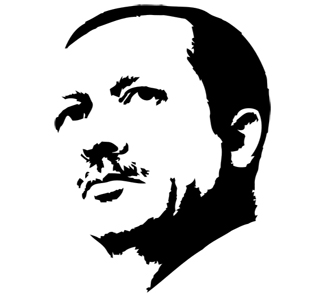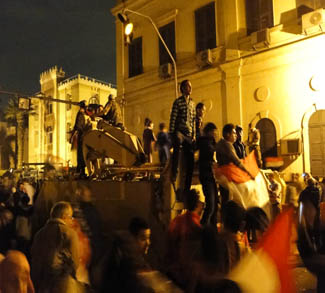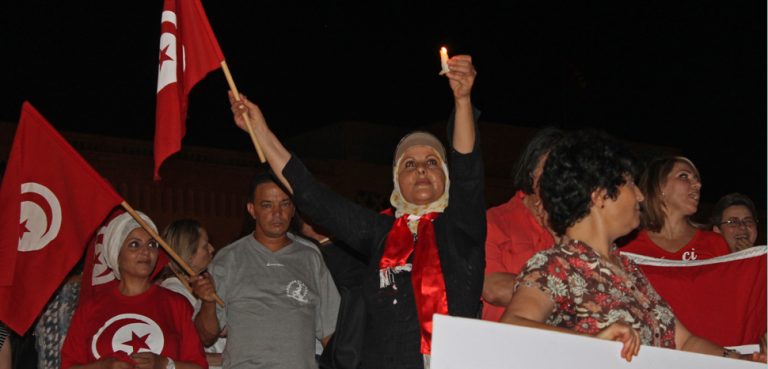Chaos has reigned in Turkey since the brutal eviction of a sit-in at Istanbul’s Taksim Gezi Park in May. The sit-in had originally been organized to protest the proposed demolition of the park and reconstruction of a historic military barracks in its place. Demonstrators occupied the park for several days before being uprooted by police forces using tear gas and making violent arrests. After the area was initially cleared, however, protestors returned to the park and nearby Taksim Square. On June 11th, police moved in to suppress the protestors once more; undercover officers threw Molotov cocktails, while those in uniform used tear gas and water cannons.
The violent dispersal of the sit-in at Taksim Gezi Park has served as a catalyst for widespread demonstrations across Turkey, but these protestors’ concerns extend far beyond police brutality. The government’s harsh response to the sit-in, which was begun by a group of local environmentalists, prompted protests over a wide spectrum of domestic issues, such as authoritarian politics, infringements on the right of peaceful assembly and freedom of expression, and government encroachment on Turkish secularism. Thousands of Turkish lawyers vocally opposed the violent treatment of protestors in Taksim Square and across the country, and a number have been detained by Turkish police for staging protests of their own outside a courthouse.
Events in Turkey so far bear somewhat of a resemblance to the so-called ‘Arab Spring,’ the wave of revolutions and uprisings that swept the Middle East, from Tunisia to Egypt to Libya, beginning in late 2010.
During the Tunisian revolution, news of vegetable vendor’s self-immolation quickly spread across the country via social media. In Turkey, social media has also been used by demonstrators for organizational purposes and to broadcast developments to the world in real time. Similar to the case in Tunisia where one local event triggered a national movement, the suppression of the Taksim Gezi Park sit-in was the catalyst that caused protests to erupt across Turkey.
In Egypt, citizens initially took to the streets to protest a lack of adequate government services; they never dreamt that in a matter of weeks, long-standing dictator Hosni Mubarak would relinquish power. Similarly in Turkey, protests against police brutality have transformed into opposition against the increasing authoritarianism of Prime Minister Erdogan. Since Erdogan assumed power in 2003, the quality of Turkey’s democracy has been persistently called into question. There is a “climate of fear” among journalists in Turkey, many of whom have been arrested and jailed under Erdogan. There have also been crackdowns on Kurds, a long-oppressed minority in Turkey.
From the onset of the Turkey crisis, Erdogan assumed an aggressively defensive stance and denied charges of authoritarianism. After returning on June 6th from a brief trip abroad, he stated, “These protests that are bordering on illegality must come to an end as of now.” While Erdogan has acknowledged that environmentalists were involved in the initial Taksim Gezi Park sit-in, he has announced that terrorists have seized the demonstrations as an opportunity to pursue their own ends. Bizarrely, Erdogan expressed the belief that bankers are also part of a conspiracy to fuel the protests. On June 13th he issued an ultimatum to protestors demanding that they end their occupation of the park. “We have arrived at the end of our patience,” were his exact words.
Despite the protests, many Muslims in Turkey still support Erdogan. A crowd of more than 10,000 greeted him with cheers upon his return to Turkey on June 6th. “God is great,” the people chanted as Erdogan spoke. Erdogan’s Justice and Development Party (AKP) has deep historical roots in Islam, and some maintain that his commitment to upholding Turkish secularism is dubious.
Significantly, Turkey’s military leaders have remained silent throughout the protests. As in Egypt, the Turkish Armed Forces have a history of coups and other involvements in domestic political affairs. Immediately upon assuming office, Erdogan moved to reign in the role of the military by reforming the National Security Council, which had previously functioned as a kind of parallel government. Tension between the military and the government arose over the appointment of AKP co-founder Abdullah Gul as President. The General Staff, which presides over all armed forces in Turkey, issued a warning on their website asserting that Gul’s promotion represented a threat to secularism in the country. In the past, Turkish politicians bowed to military leaders. But in 2007, the AKP leadership chided the General Staff for its interference and nothing more came of the situation.
Reducing the power and influence of the military in political affairs is considered an essential component of substantive, functioning democracy. That the Turkish military has refrained from involving itself in the recent events is a sign that Turkey’s long history of coups and, in the case of the 2007 warning against Abdullah Gul, “e-coups,” might be at an end.
It is not surprising that Erdogan has swiftly moved to condemn and suppress the protests. The crowds and their allegations of autocracy against his government have shone an unflattering light on the Turkish political system, which has often been touted a model for Middle Eastern democracy. Erdogan met with protest leaders sometime between June 13th to 14th to discuss the future of Taksim Gezi Park and a possible end to anti-government demonstrations. As a result of the talks, the Turkish government put a halt on plans to develop the park until a court ruled on the project.
Elections in Turkey are held every four years; it remains to be seen whether the protests will still be salient and affect the outcome of the next elections in 2015. Internationally, the protests have damaged Turkey’s image, particularly in the eyes of the European Union. Turkey’s bid to join the EU has stagnated over the last three years, and the violent police crackdown on the protests serves to further undermine Turkish-EU relations. The role of the military, police actions and responses to future protests, as well as the dialogue between the EU and Erdogan’s administration are all areas of interest moving forward for Turkey.




